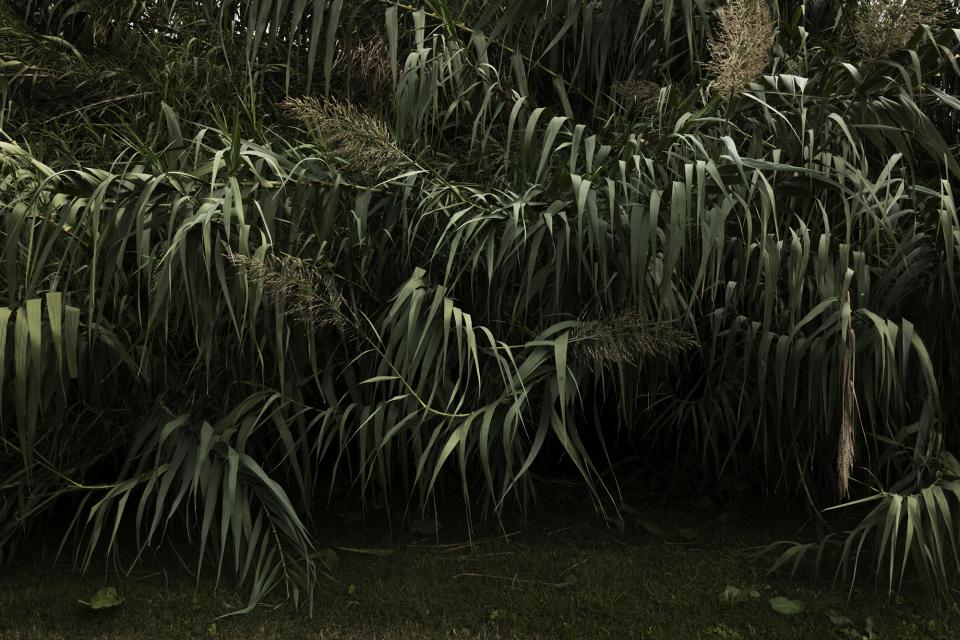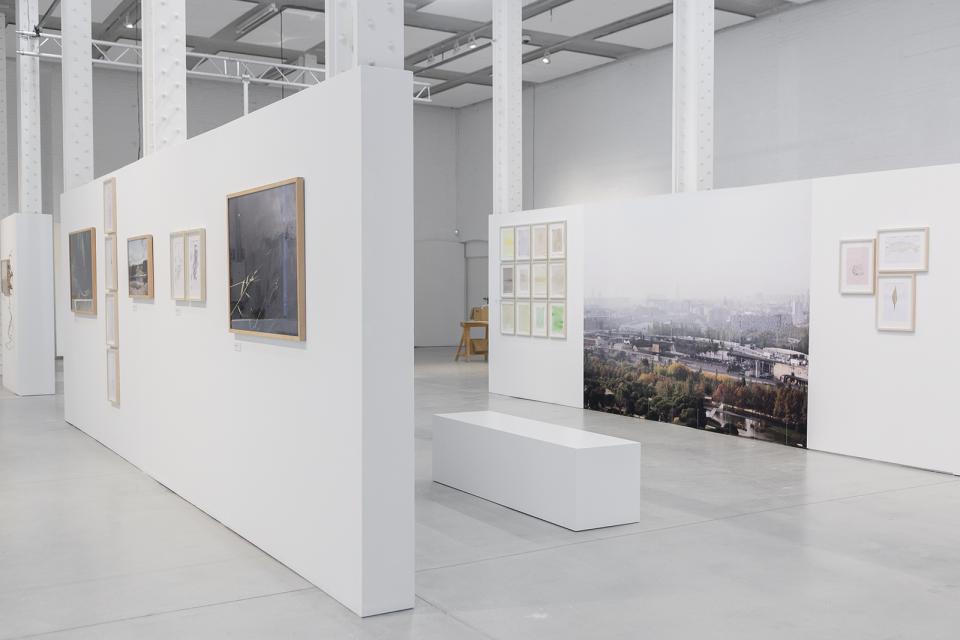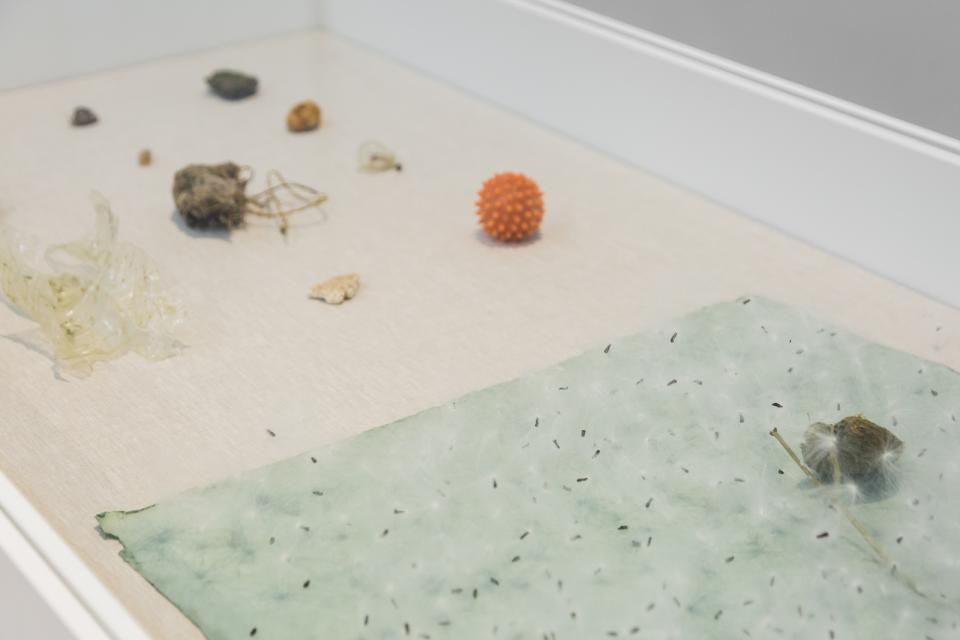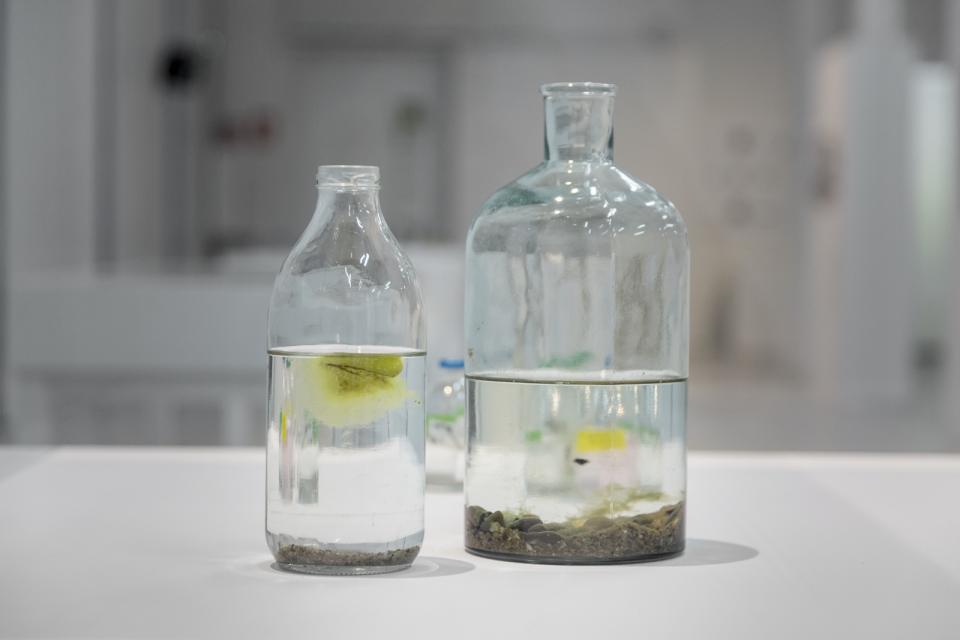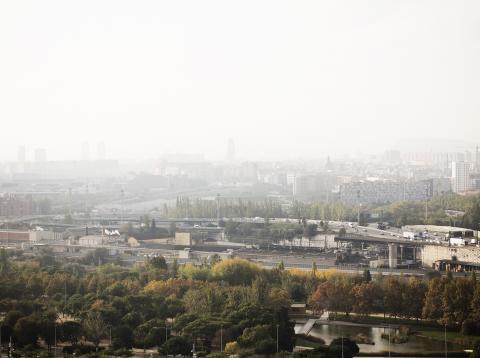Besòs: A Noble Ecosystem
Dates: 24 January to 3 March 2019
Exhibition Opening: Wednesday, 23 January, 19.00
Where: Espai Zero
A River Runs Through It
Arianna Rinaldo (curator)
‘Ecosystem’ is one of those well-known words we learn at school, referring to an interconnected network where biological elements share a balanced living environment; an interdependent community in which all components interact and influence each other.
Duae Collective (Silvia Campidelli / Luna Coppola) has been exploring and studying the river Besòs and its surroundings for two years, investigating its natural, urban and social ecosystem: an ongoing artistic research that has created a vast archive of aspects of the river that refer to its history, its biology and its existence within the city environment.
A river running through a city can reveal the secrets of nature’s laws to its inhabitants and create a link to the biological and organic flow of life that can be profoundly affected by humankind’s behaviour.
The Besòs river was one of the most polluted in Europe during the 1970s and 1980s due to the intensive industrialisation of the Barcelona area. It has been the object of improvement projects and various city planning efforts but still needs to be experienced and become a more familiar component of the urban ecosystem it belongs to.
The artistic investigation that Duae Collective has conducted is meant to discover, interpret and show the river and its resources, and bring it closer to the people of the neighbourhood and the city. The immersive aspect of the exhibition, the multidisciplinary approach and the diversified layers of analysis and information are intended to reach a wide audience.
Drawing on diverse sources and working in collaboration with various institutions and experts, the artistic team strives to offer the broadest vision of the noble ecosystem that the river Besòs constitutes.
The initial concept, the study of the environmental sustainability of such an important watercourse, led the artists to delve into the scientific aspects of its components and the incredible discovery of a site-specific bacterium, which contributes to the elimination of its own polluting elements. This rare “immune system” that the Besòs river holds could become a useful tool for other contaminated waterways.
Among the fieldwork that characterises its artistic methodology, Duae collects natural objects and data. Silvia and Luna record and draw, they photograph and listen. They transcribe and interpret all the languages and expertise that speak of the Besòs. Academic scientific research and local urban planning are just two of the main fields of knowledge they draw on; two of the many codes they study and translate to explore the complex urban bio-sociology of this river in their creative endeavour.
By exposing the artistic process that continuously evolves from the discoveries on land and in the lab, through diversified fieldwork and participatory events, Duae Collective attempts to erase the idea of the river as a border, as “other” from the social and urban environment. This goal is reached by integrating its elements with the anthropological and political framework of a city river and narrating a symbolic microcosm that reveals the need and necessity to resist, create and self-regenerate.
A most timely message that a simple river can so nobly offer to those who are able to listen. As the river water flows, its sound is often muted by the hustle and bustle of the city, the noise of cars on the motorway, the hum of a nearby power station… but, this water carries ancient wisdom and the secrets of resilience and survival.
The sensorial experience and the creative tools offered in this exhibition are an invitation to come closer to a reality that is not far from and is part of our world, in order to envision the strength of nature and reflect on the deep responsibility that we have, as humans, to make our surroundings hospitable, sustainable, harmonious and integrated.
Every Saturday at 18.00 and Sundays at 12.30 guided tours of the exhibitions.
Free entrance.



